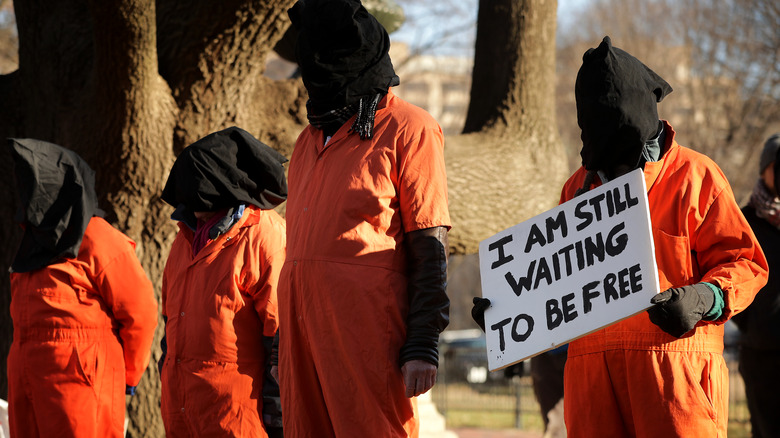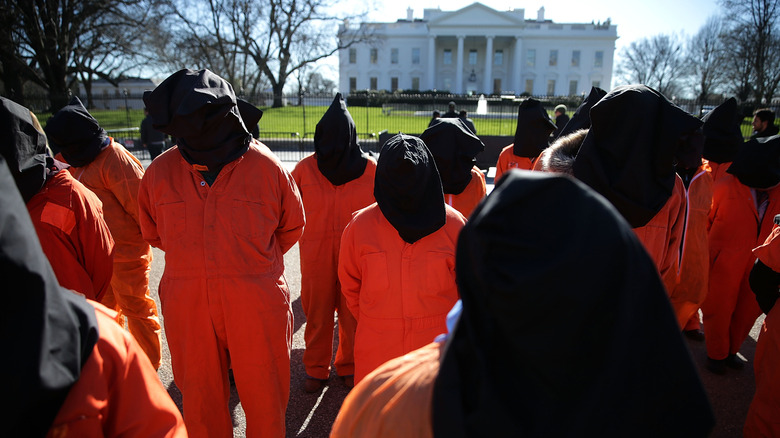The Truth About Guantanamo Bay's 'Forever Prisoners'
The Geneva Conventions stipulate that there are two categories of "protected persons" when people get arrested during international armed conflicts. People either fall into the category of combatants, who become prisoners of war protected by the Third Geneva Convention, or they fall into the category of civilians protected by the Fourth Geneva Convention.
But according to the Journal of International Criminal Justice, the United States administration claims that the people being held in Guantánamo Bay detention camp fall into neither category and are instead to be considered "unlawful combatants." This is why people imprisoned at Guantánamo Bay are referred to as detainees. Because if they were called prisoners, they would have to be treated, and protected, under the Geneva Conventions.
In July 2021, Abdul Latif Nasser, one of Guantánamo Bay's "forever prisoners," was repatriated back to Morocco, per Vice. Nasser had been held in the detention camp without charge and without trial since 2002 and had even been recommended for release five years before his actual release. But what exactly is a "forever prisoner"? And how many other "forever prisoners" are there?
Forever prisoners at Guantánamo Bay
As of September 2021, 39 people remain imprisoned at Guantánamo Bay, Cuba. Out of these 39, 17 people are being held in "indefinite law-of-war detention," facing neither charges nor a recommendation for release. Out of the 39, 10 people are also being held in law-of-war detention without charges, but have been recommended for transfer to another country, according to The New York Times. The New Republic writes that those who are being held without trial or charge and have been designated as being "too dangerous to release but not prosecutable" are known as "forever prisoners."
In 2008, the United States Supreme Court ruled that people imprisoned at Guantánamo can challenge their imprisonment by filing writs of habeas corpus. And in 2020, a federal appeals court panel ruled that people imprisoned at Guantánamo are not entitled to due process protections, per The New York Times.
Meanwhile, in 2018, the Center for Constitutional Rights filed a habeas petition on behalf of 11 forever prisoners, arguing that even if there was authority to detain people at one point, their imprisonment is not "indefinite and perpetual, and that is unlawful and illegal under the domestic statue that authorizes their detention, the [Authorization for the Use of Military Force], and international law," according to Pardiss Kebriaei, a lawyer on the case.

